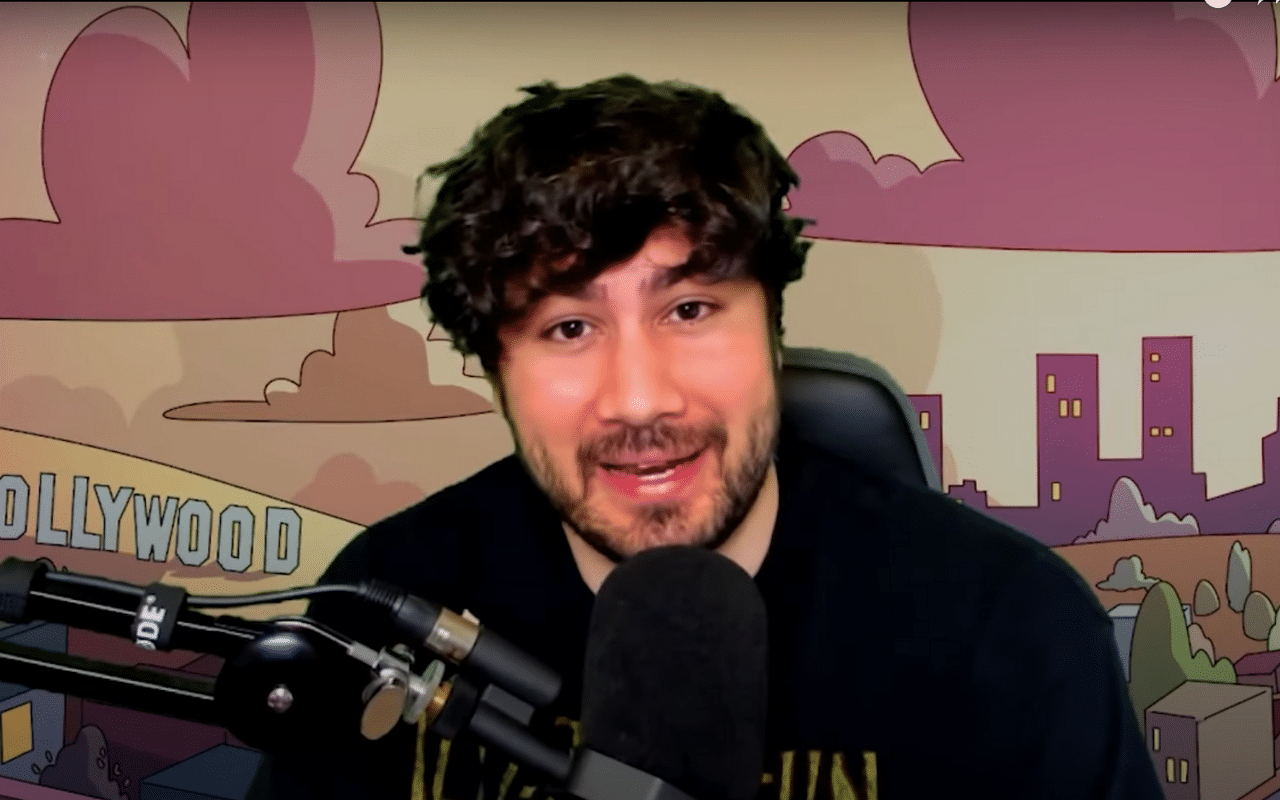
Def Noodles, the internet’s go-to account for cultural commentary and influencer tea, uploaded a video to his YouTube Channel titled “i quit” on February 10th.
While the title is clickbait, the account’s creator, Dennis Feitosa, spent the last 6-minutes of his daily post apologising for his behaviour in a video with fellow commentary channel PapaGut.
ICYMI, Dennis engaged in a “debate” with PapaGut over gaming streamer Kilik’s vulgar and sexual comments about The Bee Family’s 15-year-old daughter, Gabriela Burgos. Before hopping on Zoom for the debate, Def Noodles and PapaGut had been going back and forth, posting response videos to each other’s opinions on the situation.
It all started with PapaGut’s YouTube video titled “Def Noodles Bad Take on The Bee Family”. He then went on to post two more videos analysing and critiquing Def Noodles’ comments. Dennis shared a YouTube video in response and penned a community tab post.
Upon watching Dennis debate PapaGut, many internet users have expressed their disappointment with the 26-year-old content creator. However, it was not Dennis’ comments about The Bee Family that angered his followers, but rather how he portrayed his channel and handled the conversation.
Throughout the debate, Dennis repeatedly referred to himself as a “comedy channel” or “comedian” rather than an influencer watchdog account. With Def Noodles subscribers watching his content for influencer news and drama, many believe Dennis characterises his channel as a “comedy show” to deflect criticism. Insider Journalist Kat Tenbarge took to Twitter to share this view.
“Def Noodles is one of the most interesting & confounding characters in the YT drama community,” she wrote. “Huge news platform, HUGE influence over creators’ reputations, but says it’s all jokes and satire whenever he gets into an argument.”
Def Noodles is one of the most interesting & confounding characters in the YT drama community. Huge news platform, HUGE influence over creators’ reputations, but says it’s all jokes and satire whenever he gets into an argument.
— Kat Tenbarge (@kattenbarge) February 9, 2022
With over 602K subscribers on YouTube, there is no denying that Def Noodles is a force to be reckoned with in the influencer world. Time and time again, Dennis has broken news stories and come prepared with receipts – most notably, during the James Charles grooming scandal in 2021.
Cited by numerous journalists and mainstream media outlets, Dennis compiled a thread of the allegations against James. This was also the thread that James addressed in his apology video, showing that Def Noodles’ work made a significant impact in holding James accountable.
As internet culture merged with the mainstream, Def Noodles became a “primary news publisher” throughout this period. With this, drama channels have started to influence mainstream news in a way that has never been seen before.
Def Noodles singlehandedly drove the James Charles sexting scandal by being the only news source to publish all the different TikTok accusations before they were taken down. So whether he likes it or not, he was a primary news publisher in that case, as well as many others.
— Kat Tenbarge (@kattenbarge) February 9, 2022
Ultimately, as commentary channels become more influential in mainstream culture, the Def Noodles and PapaGut debate points to a new and pressing struggle for these channels. Dennis, positioning himself as a “comedian” rather than a reporter, shows us that it is increasingly difficult for commentary channels to differentiate between their role as entertainer and ‘news outlets.’
With the line blurred between entertainment and reporting, the responsibility of these drama channels seems to be shifting. Whether Dennis likes it or not, viewers treat these accounts as legitimate news sources. For many internet users, humour and comedy come second to reporting, especially when it comes to holding creators with mass influence accountable.
Additionally, these accounts have paved the way for mainstream journalists and reporters to undertake and invest resources in larger investigative pieces, such as Insider’s exposé of the Vlog Squad in 2021, leading to the mass cancellation of David Dobrik and his crew. By Dennis refusing to acknowledge the impact of his content, he is inadvertently minimising the significance of drama channels and the knock on effect they have had on mainstream culture and reporting.
Here’s hoping we continue to move forward, not backwards when it comes to internet culture reporting and accountability in 2022— with Def Noodles continuing to lead the charge (and taking it seriously while he does so).


